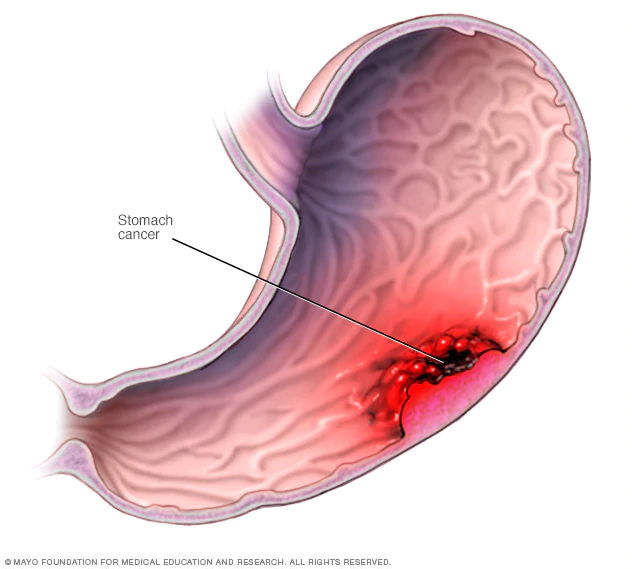Stomach Cancer Treatment in Guatemala
Search and Compare the Best Clinics and Doctors at the Lowest Prices for Stomach Cancer Treatment in Guatemala

Find the best clinics for Stomach Cancer Treatment in Guatemala
No clinics available
Ukraine offers the best prices Worldwide
Price: $ 2,487

- Home
- Guatemala
WHY US?
At Medijump, we're making medical easy. You can search, compare, discuss, and book your medical all in one place. We open the door to the best medical providers worldwide, saving you time and energy along the way, and it's all for FREE, no hidden fees, and no price markups guaranteed. So what are you waiting for?

Free

Best Price

Widest Selection

Risk-Free
What you need to know about Stomach Cancer Treatment in Guatemala

If you have been diagnosed with stomach cancer, your doctor will discuss your treatment options with you. Your treatment options depend on several factors, including your overall health, the stage of your cancer, your age, and your personal preference. Stomach cancer may be treated with surgery, chemotherapy, radiation therapy, targeted therapy, or immunotherapy.
What does a Stomach Cancer Treatment Procedure Involve?
Surgery for stomach cancer is performed to remove all of the stomach cancer and some of the surrounding healthy tissue, your doctor may remove early-stage tumors from the lining of your stomach, remove a portion of your stomach (subtotal gastrectomy), remove your entire stomach (total gastrectomy), and remove lymph nodes to look for cancer. All of these surgeries are performed under general anesthetic. With chemotherapy, a drug is used to kill cancer cells, while with radiation therapy, high-powered energy beams are used to kill cancer. Your doctor may also recommend targeted therapy or immunotherapy, which uses targeted drugs or your own immune system to fight cancer.
How Long Should I Stay in Guatemala for a Stomach Cancer Treatment Procedure?
After surgery, you will need to stay in the hospital for three to eight days and stay in Guatemala for seven to fourteen additional days after you are discharged. If you undergo immunotherapy, chemotherapy, radiation therapy, or targeted therapy, your length of stay depends on how many cycles are needed for your specific case.
What's the Recovery Time for Stomach Cancer Treatment Procedures in Guatemala?
The total recovery time until you can return to your normal routine may take several months, but you should be able to return to work within 4-6 weeks. If you only have therapy, you should be able to return to most of your activities when you do not experience any symptoms that interfere with your ability to perform your duties.
What sort of Aftercare is Required for Stomach Cancer Treatment Procedures in Guatemala?
You need to adjust to a new diet after the surgery so make sure to talk to a dietitian about what to eat. Regular exercise is really important to keep your body healthy, you can start walking as soon as you can. Make sure to schedule follow-up checkups with your doctor to monitor your condition and you may do this with your local doctor at home or your doctor in Guatemala.
What's the Success Rate of Stomach Cancer Treatment Procedures in Guatemala?
Treatment for stomach cancer is known to be effective, but the success rate varies depending on how early the treatment is performed as well as the stage of cancer. The side effects and risks of stomach cancer treatment, which include infection, bleeding, damage to other organs, problems with anesthetic, hair loss, and fatigue.
Are there Alternatives to Stomach Cancer Treatment Procedures in Guatemala?
If you prefer not to undergo treatment or too frail for any type of treatment, you should consult with your doctor and cancer team on the best alternative for you. In some cases, surgery to relieve only the signs and symptoms is recommended.
What Should You Expect Before and After the Procedure
Stomach cancer causes symptoms such as heartburn, nausea, pain, vomiting, and fatigue that may interfere with your daily life. It is also dangerous and it can spread to other organs. After the surgery, you should no longer experience any symptoms and you can return to your normal life.
Whilst the information presented here has been accurately sourced and verified by a medical professional for its accuracy, it is still advised to consult with your doctor before pursuing a medical treatment at one of the listed medical providers
No Time?
Tell us what you're looking for and we'll reachout to the top clinics all at once
Enquire Now

Popular Procedures in Guatemala
Prices Start From $1,314

Prices Start From $512

Recommended Medical Centers in Guatemala for procedures similar to Stomach Cancer Treatment

- Interpreter services
- Translation service
- Religious facilities
- Medical records transfer
- Medical travel insurance
- Health insurance coordination
- TV in the room
- Safe in the room
- Phone in the room
- Private rooms for patients available

- Interpreter services
- Translation service
- Religious facilities
- Medical records transfer
- Medical travel insurance
- Health insurance coordination
- TV in the room
- Safe in the room
- Phone in the room
- Private rooms for patients available

- Interpreter services
- Translation service
- Religious facilities
- Medical records transfer
- Medical travel insurance
- Health insurance coordination
- TV in the room
- Safe in the room
- Phone in the room
- Private rooms for patients available
Stomach Cancer Treatment in and around Guatemala
Introduction
Guatemala is a country in Central America and its territory was once the core of the Maya Civilization. There are numerous historical sites to explore in this country, from Tikal National Park where visitors can learn more about the Maya to the colonial city of Antigua, which is one of the many footprints the Spanish left behind. However, there are other charms as well, such as the many amazing volcanoes, lakes, jungles, and inexpensive food markets. Besides its natural beauty and ancient ruins, Guatemala is also popular among international tourists for its medical tourism. Foreign patients who are looking for a more cost-effective solution for their medical requirements choose Guatemala because the country offers the finest quality healthcare at reasonable rates. On average, medical procedures in this country are 50 to 75% less expensive than in the US. Furthermore, the standard and quality of the hospitals and clinics in this country are on par with those in the USA.
Popular Cities and Regions in Guatemala
The most popular city in Guatemala is Antigua, which was the capital of Guatemala. Located in the central highlands of the country, between three volcanoes, this city is mainly known for its preserved Spanish Baroque-influenced architecture. From its churches, houses, ruins, parks, to its cobbled streets, the city will never cease to captivate visitors. Visit the Plaza Mayor (central square) to admire its awesome palaces, cathedral, and gardens. While most travelers used to skip Guatemala City, the capital of the country, more and more travelers are coming to the city as it reinvents itself as a safe and interesting destination to visit. Another popular city is Panajachel, which is the gateway to the striking Lago de Atitlán.
Transport in Guatemala
The primary airport in Guatemala is La Aurora International Airport, which operates international flights to and from several cities in North and Central America, such as Los Angeles, New York, Mexico City, and San Salvador. Low-cost airlines, including JetBlue and Volaris, serve flights from this airport. The most common way to travel around the country is by pull man (first-class buses+, rental cars, and “chicken bus” (second-class buses). To travel inside cities and towns, taxis and three-wheeled Thai tuk-tuks are widely available.
Visas in Guatemala
Holders of passports of 86 countries, including all EU countries, the US, and the UK, are allowed to visit Guatemala for up to 90 days. Other nationals, including China and Nepal, need to apply for a visa to be able to visit the country.
Weather in Guatemala
Guatemala has two seasons. The rainy season stretches from May through October, with the majority of rain falling between September and October. The dry season extends from November to April, characterized by clear, blue skies. Note that coastal areas can be very humid.
Additional Info
- Local Currency: The official currency is Quetzal (GTQ). 1 USD is approx. 7.6 GTQ.
- Money & Payments: ATMs are widely available. Credit Cards are accepted in most midrange and high-end restaurants and hostels. Tipping is usually expected except by taxi drivers.
- Local Language: Spanish is the official language spoken by 93% of the population. Very few locals speak English. The only places where you can find English speakers are in tourist areas.
- Local Culture and Religion: The culture of the country reflects strong Mayan and Spanish influences. Guatemala has the freedom of religion, but Christianity is the predominant religion.
- Public Holidays: Guatemala celebrates several public holidays, including (but not limited to) New Year’s Day, Labor Day, Army Day, Independence Day, Revolution Day, and Christmas Day.
Popular Searches
- Plastic Surgery in Thailand
- Dental Implants in Thailand
- Hair Transplant in Thailand
- Breast Augmentation Thailand
- Gastric Sleeve in Thailand
- Gender Reassignment Surgery in Thailand
- Laser Hair Removal in Bangkok
- Botox in Bangkok
- Dermatology in Bangkok
- Breast Augmentation in Bangkok
- Coolsculpting in Bangkok
- Veneers in Turkey
- Hair Transplant in Turkey
- Rhinoplasty in Turkey
- Stem Cell Therapy in Mexico
- Rhinoplasty in Mexico
- Liposuction in Mexico
- Coolsculpting in Tijuana
- Rhinoplasty in Korea
- Scar Removal in Korea
- Gastric Sleeve in Turkey
- Bone Marrow Transplant in India
- Invisalign in Malaysia
- Plastic Surgery in the Dominican Republic
- Tummy Tuck in the Dominican Republic
- Plastic and Cosmetic Surgery in Poland
- Rhinoplasty in Poland
- Hair Implant in Poland
- Dental Implants in Poland
- IVF in Turkey